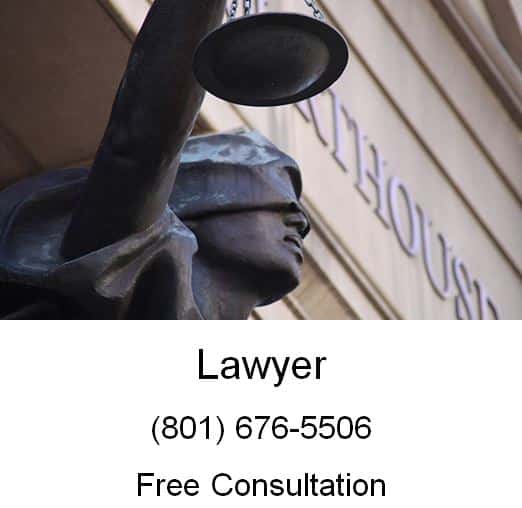Alternative dispute resolution (ADR) is a cost- and time-effective divorce option that enables couples to avoid contentious litigation. Two types of ADR used in family law in Utah are mediation and the collaborative divorce process. Mediation employs the use of a trained, neutral third party, such as an attorney or other trained specialist, to assist a divorcing couple craft satisfying divorce and child custody agreements. In the collaborative process, each spouse is represented by a trained attorney and the group together works to create agreements that reflect the wishes of each party.
While collaborative divorce and mediation are alternatives to litigation, I’m telling you as a divorce lawyer that these methods may not be the best choice for you. Drawbacks to these processes include the following:
- Communication: ADR may not be a good option for couples experiencing a volatile break-up. When partners are bitter, non-communicative, or hostile, mediation can quickly go awry and turn a low-conflict process into the first skirmish of a long divorce battle.
- Integrity: If a spouse acts in bad faith — either hiding assets or attempting to manipulate his or her partner — mediation is a futile exercise.
- Representation: Without advocacy by a family law attorney, either party in mediation may feel pressured to make uninformed concessions they would not otherwise agree to.
Under any circumstances, divorce is difficult. Before you make decisions that affect your future, contact an experienced divorce lawyer to choose the route through divorce that is best for you.
Documents to Update After Divorce
When your divorce is finalized, it’s time to update some key documents. These include:
- Social Security: If you changed your name when you got married, you can regain your married name and obtain a new Social Security card through the Social Security Administration. If you are middle-aged or older upon divorce, inform yourself about Social Security benefits.
- Driver license: Change the name on your driver license if needed through the Utah Department of Motor Vehicles.
- Healthcare proxies: Estate planning is an important priority following divorce. A new will and other estate planning documents should be prepared along with updated health care documentation.
- Policies: Life insurance, retirement and other policy beneficiaries should be revisited if appropriate.
- Credit cards: Order a copy of your credit report and review it to ensure your credit record is clean following your divorce. There may be forgotten joint accounts, equity loans or other lines of credit to be closed following a divorce. Follow through with banks and creditors.
- Safety deposit boxes: If your safety deposit box is held jointly, close your account. Obtain a new box and move your valuables. The signature of your ex-spouse is likely required to close the box.
- Memberships: Club and other memberships may need to be updated, including online memberships such as Amazon Prime.
Although addressing more legalities may seem like too much following your divorce, these updates conclude your divorce and enable your future to unfold smoothly. With time, your individual identity becomes well established.
Tips for Achieving Financial Success During, After a Divorce
While planning for your divorce might seem like a daunting and unappealing process, it is important to prepare yourself for the process you are about to go through and what lies beyond it. Specifically, sound financial planning can help you avoid some of the challenges divorced people tend to face.
Below are a few tips to help you protect yourself financially during and after a divorce:
- Choose the right lawyer: The attorney you consult should be able to help you achieve a favorable outcome that will set you up for long-term financial stability. He or she should be a true partner to you throughout the entire process.
- Inventory everything you own: Keep track of what you own and the amount of money you have in accounts and other assets. Get copies of all documents that verify these assets so you have clear evidence and are more organized when settlement negotiations begin.
- Consider taxes: The way assets get divided during the divorce process can have some significant tax ramifications. You must consider this for every move and decision you make.
- Check your credit score: It is important to know where you stand so you are not surprised after your divorce when you find yourself in need of a loan, but are unable to get one due to a poor credit rating.
- Update your beneficiaries: Review the beneficiaries on your retirement plans and any other accounts or estate documents with named beneficiaries to be sure you are not inadvertently giving money or assets to your former spouse.
- Insure child support and alimony: If your former spouse becomes disabled or passes away, you don’t want to be left high and dry when it comes to child support and alimony. This insurance can provide you with some peace of mind.
Free Consultation with Divorce Lawyer in Utah
If you have a question about divorce law or if you need to start or defend against a divorce case in Utah call Ascent Law at (801) 676-5506. We will fight for you.
8833 S. Redwood Road, Suite C
West Jordan, Utah
84088 United States
Telephone: (801) 676-5506
Recent Posts
Employers and Harassment Claims
What Documents Do I Need to Bring When I Frist Meet With My Bankruptcy Attorney?
Making Divorce More Affordable Through Mediation
Psychological Evaluations in Utah Divorce and Custody Cases
How to Get the Best Outcome in Divorce
Source: https://www.ascentlawfirm.com/is-mediation-the-best-route-in-divorce/


No comments:
Post a Comment